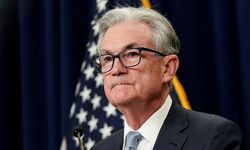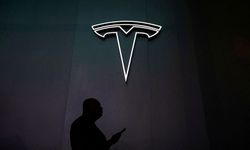Commerzbank CEO Manfred Knof said that structural changes are needed to prevent the rise of the far right in Germany.
According to CNBC, the CEO of the German bank said that the rise of far-right parties due to the unhappiness of the population in the country is a worrying development. Knof added that society is aware that structural problems have not been solved.
"We have been doing quite well for a long time and maybe we have been asleep and not ready to modernize and deal with the structurally necessary changes and modernizations. I think a political agenda to bring people together can help. Democracy is of course not a non-negotiable area, we have to fight for it and protect it."
Germany's Federal Ministry for Economic Affairs and Climate Protection did not respond to CNBC's request for comment.
The country's far-right Alternative for Germany party won a regional council election for the first time in June. Many are eager to see how the group will perform in the upcoming local elections in the state of Bavaria.
Knof also said Germany's small and medium-sized companies, known as Mittelstand, were reluctant to invest in their home country because of structural problems in Europe's largest economy.
"The situation ahead is quite challenging and this is exactly what we see in German SMEs. They are resilient, but we see a reluctance to invest. This should worry us going forward. We need more business activity and a better structure for German SMEs to invest in this country."
The comments are similar to those made by Siegfried Russwurm, President of the Federation of German Industry, in June. Russwurm said that high energy prices were forcing companies to relocate to other regions.
"Many family-owned companies have very operational plans to relocate," Russwurm said. The president of the Federation of German Industries said that the current business conditions in the country have created a "cocktail of obstacles" for companies.
Hans-Werner Sinn, President Emeritus of the Ifo Institute, echoed similar comments about the German population moving closer to right-wing political movements. In particular, Sinn criticized the country's outlook on sustainability: "This is clearly backfiring. The population is now shifting to the right of the political spectrum."
Germany is trying to implement the Energy Efficiency Strategy 2050, which includes reducing the use of the primary energy source by 2030. But Germany's insistence on this policy has come under criticism as Russia's invasion of Ukraine has driven up energy prices across Europe.
Harsh warning to Germany from Commerzbank CEO!
The CEO of Commerzbank, one of Germany's largest banks, warned about the rising far right in the country. The CEO added that structural changes are needed in management against the rise of the right-wing
Trending news

Snoop Dogg to carry the Olympic torch

Lily James Expresses Admiration for Hailey Bieber’s Rhode Skincare Line

Taylor Tomlinson Will Explore Her Faith and Sexuality on Tour!

'Alien mummy' in Peru raises eyebrows

Scandal in the heart of Europe: Child abuse in a church!

Kamala Harris’ Running Mate: Here’s Who Could Be Her VP After Biden Drops Out And Endorses Her









